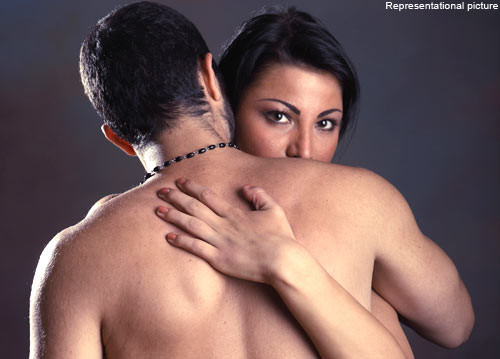Sex & Intimacy, Sexual Addiction
How to break free from love addiction
Love Addiction can be loosely defined as a dysfunctional relationship between two people in which one person strives, almost compulsively, to ‘fix’ the other person. A characteristic behavior in Love Addiction is enabling, in which the love addict ignores problem behavior in the other person or makes excuses for them in order to continuously feel needed or to live up to a faulty sense of responsibility for that person’s conduct.
Overcoming toxic love
Owning up
To start, it is necessary to understand we have common patterns in love-addicted relationships. Some patterns of love addiction: falling in love too quickly into relationships; ignoring unhealthy behaviors of one’s partner; trying to control our partner’s behavior so that we feel comfortable; allowing our partner’s mood to bring us down; having unrealistic expectations that a romantic relationship will fill ‘all’ your needs and wants; and trying to ‘fix’ whatever problem arises in our partner’s life instead of allowing them to fix it themselves.
When we succumb to these inappropriate and harmful behaviors and choices, we lose the connection to ourselves by handing our power over to another. In a love-addicted situation, these toxic behavioral patterns become the foundation of a relationship and develop into comfortable, yet unhealthy patterns.
As children growing up in a dysfunctional family, love addicts come to believe that needs and wants are supplied by someone or some force outside of the self. This belief is hazardous to self-esteem, self-growth and independence. As adults, we are the only real creators of our own inners sense of peace, happiness and self-esteem- the rest is just illusion.
Emotional Maturity
Our emotional maturity dictates our ability to manage and monitor our emotions and to determine the emotional state of others. A high degree of emotional maturity allows us to think before we act, take responsibility for our lives and actions, and respect the independence of others. In this way, communication barriers in relationships and unhealthy behavioral patterns can be overcome.
Healthy Boundary-Setting
Developing healthy boundaries is critical to intimacy, self-esteem development, and what kind of people we allow in our lives. Healthy boundaries allow us to protect and take care of ourselves. We must recognize when we are being disrespected, then communicate clearly that our boundaries are being infringed upon. We have a right to protect and defend ourselves, and are obligated to take responsibility for how we allow others to treat us. With healthy boundaries, we will not allow another’s dysfunctions and insecurities rule our actions and behaviors. We can learn to recognize where and how we can help in ways that will empower ourselves and those around us.
Self-Identity
When we are self-aware, we have the ability to change in positive ways. We can see which things we need to work on, in ourselves and in our relationships. Through this self-identity, we learn how to be interdependent or mutually dependent. There is a balance to the relationship, where each person depends on each other in fair and healthy ways. With interdependence, we consciously become aware our self-worth is no longer dependent on outside influence and validation.
Willingness to Change
Changing our relationship with ourselves is essential to accomplishing any permanent changes in our relationships with others. Obtaining healthy interdependence allows us to see the truth in ourselves, others, and situations. Most love addicts come from a childhood with similar family dynamics. We need to work on ourselves- healing childhood trauma, carried abandonment, and adjusting our carried childhood coping mechanisms, so that we don’t continue with the patterns in relationships that are comfortable but destructive.
As we become honest with ourselves and develop healthy self-esteem, we become interdependent, without misguided beliefs that others choices and behaviors determine our self-worth. We can then seek to understand others in our lives, based on this solid internal and spiritual foundation. Through this state of being, healthy relationships are formed where two whole individual’s support each other and share their life together in a way that allows each to truly, and independently, shine.
Talking to an expert specializing in these issues is essential to help break unhealthy patterns of love addiction; who understands love addiction and how to treat it effectively
Start your recovery with these steps:
— Readings
- Facing Love Addiction: Giving Yourself the Power to Change the Way You Love by HarperOne
- Codependent No More: How to Stop Controlling Others and Start Caring for Yourself by Hazelden
- Sex Addiction 101: A Basic Guide to Healing from Sex, Porn, and Love Addiction by HCI
— Online Recovery Group for Love Addicts
http://www.loveaddicts.org/

